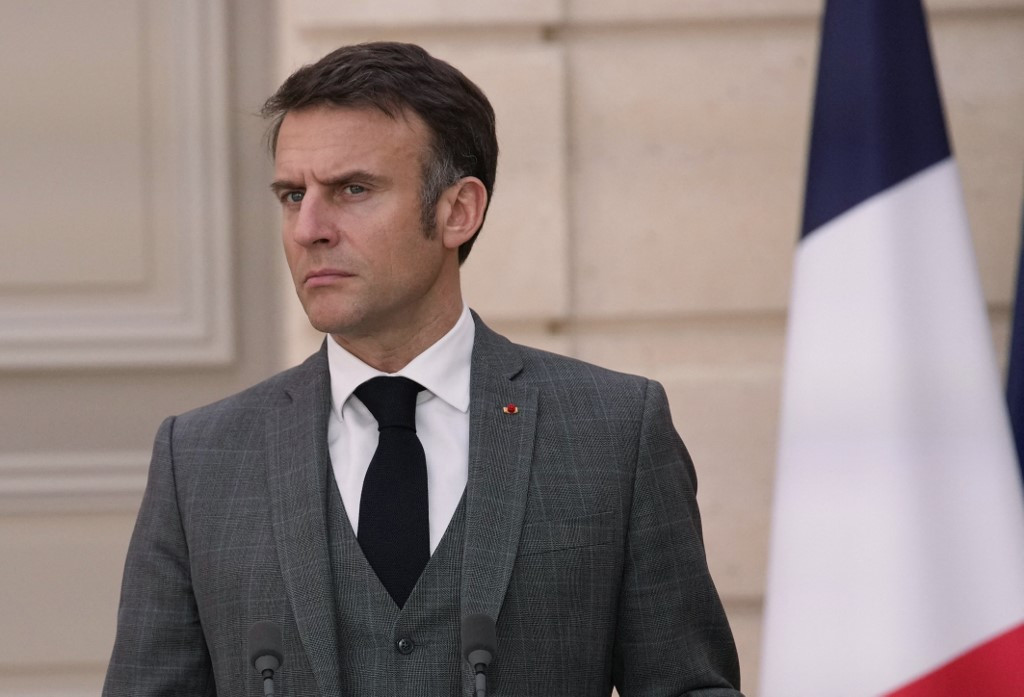French President Emmanuel Macron met with parliamentary parties on Thursday. During the meeting Macron said he was open to the possibility of sending troops to Ukraine, as announced by, according to French newspaper L’Independant.
Fabien Roussel, a representative of the French Communist Party, said after the meeting that “Macron referenced a scenario that could lead to intervention [of French troops]: the advancement of the front towards Odesa or Kyiv.”
He noted that the French President showed parliamentarians maps of the possible directions of strikes by Russian troops in Ukraine.
Following the meeting, Jordan Bardella of the far-right National Rally party noted that “there are no restrictions and no red lines” in Macron’s approach.



Idk, reading it sounds like any attack on member troops would count
No, it’s narrower than that. It only applies to attacks directly on Nato countries. It doesn’t even apply to all of a country’s territories, only within the geographic range specified in the treaty. So for instance didn’t apply to the Falkland War, despite a territory under the jurisdiction of the United Kingdom coming under attack. It’s not just any time a country’s troops or interests are under attack. US troops have been attacked many times in Iraq, Syria, and other locations, and Article 5 wasn’t invoked. The only time it was ever invoked by any country was the US after 9/11, which was pretty clearly on US territory. If it applied how you say, it could be used by any country to draw all of the rest into an offensive war, which is clearly against the spirit and words of the article.
No.
Did you read it? Do you care to provide any actual insight into the conversation, or are you just a troll?
NATO is a defensive alliance. It is specifically designed to prevent a repeat of WW1. Nor will it support military adventurism. For example, the US could invoke Article 5 after 9/11 because the US was attacked on its own territory. The US could not invoke Article 5 when its troops were attacked in Iraq or when it liberated Kuwait. The French cannot invoke Article 5 when it’s troops are attacked in the Magreb. There are also geographic boundaries. The British could not invoke Article 5 when the Falklands were attacked, even though it is British territory, because it is too far south. The French could not invoke Article 5 when it was attacked in Indochina because that was too far east.
Even when a NATO country is attacked on its own territory, it can’t have initiated hostilities. For example, Poland can’t attack Russian territory, thereby declaring war on Russia, and then invoke Article 5 and expect the rest of NATO to jump in. NATO is purely defensive and voluntary. It was designed mainly to prevent a Soviet invasion of the rest of Europe that wasn’t already behind the Iron Curtain, while also preventing any ally from drawing the rest into a war that could lead to nuclear annihilation. It cannot be “gamed” or misused to draw allies into a war.
Read article 6. No. It doesn’t meet the requirements.
Article 5 is null because if France sends troops, Russia has the right to self defense.
Also article 5 doesn’t mean anyone has to send troops. It means they have to do what they are willing to do.
https://www.nato.int/cps/en/natohq/topics_110496.htm
I doubt the United States would enter th conflict just because France wants to get in a fight. We have other treaty obligations we have to protect.
Russia is in no position where it needs to “self defend”. Its troops won’t be attacked if its troops leave Ukraine. The right to self defense is what Ukraine is using right now.
deleted by creator
Is this actually in response to my comment?
Sorry, it was in response to your earlier question about whether I was a troll.
Fairly certain that wasn’t me